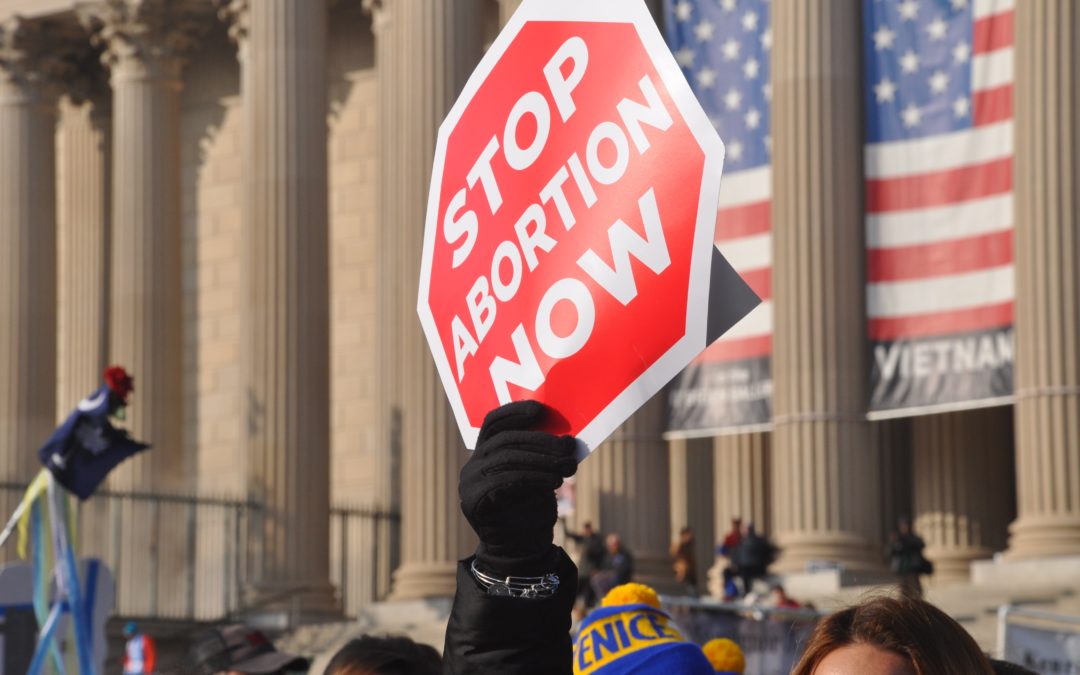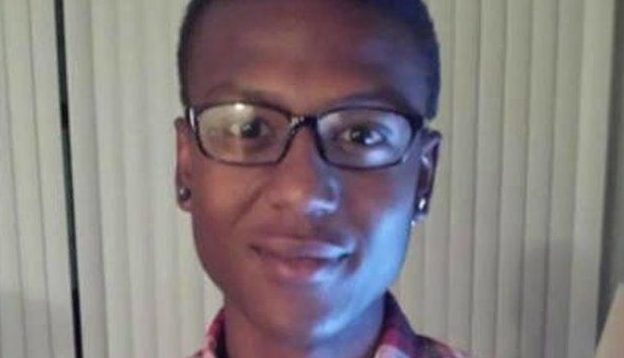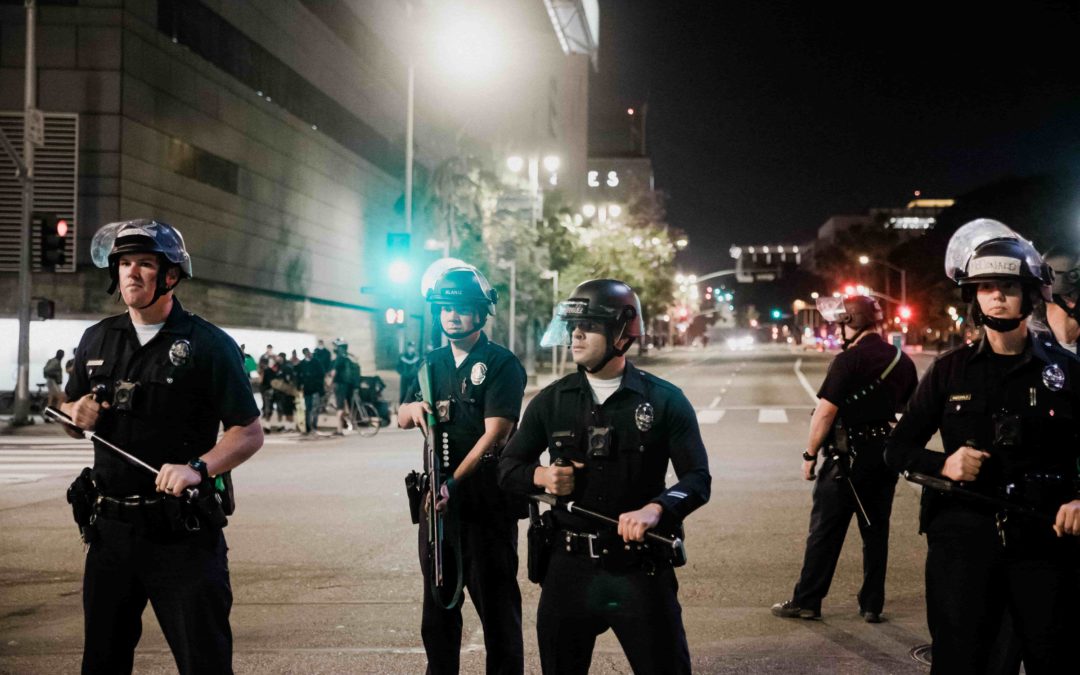
by Laghe Andrews | Sep 8, 2021 | Latest, Social Justice |
As of Wednesday morning (Sept. 1), Texas has become one of the strictest abortion states in the country by banning abortion at six weeks. Abortion providers who requested a blocking of the ban failed to obtain any relief from the Supreme Court and federal appeals court.
In Texas, women will be prohibited from getting abortions when a fetal heartbeat can be detected, which is around six weeks after conception and before many women realize they are pregnant. Although the law does allow exemptions in case of “medical emergencies,” it does not allow exceptions for rape or incest.
As part of the ban, private citizens can sue abortion providers and anyone who assists a woman in getting an abortion. A woman might receive help from a neighbor, someone who provides financial assistance, or someone from the local clergy who helps the patient. NPR reports that citizens who bring civil suits needn’t be connected to the person they’re suing in order to receive an award of at least $10,000.
A website called “whistleblower” has been launched by the anti-abortion organization Texas Right to Life for people to report illegal abortions anonymously.
John Seago of Texas Right to Life told NPR that the lawsuits are not against the women. “We would be suing the abortion industry and those making money off of abortions. Therefore, this is not spying on your neighbor.”
Abortion providers and reproductive rights groups argue that the law creates a bounty on abortion providers.
In Texas, a Whole Women’s Health clinic tweeted on Tuesday night (Aug. 31), two hours before the ban went into effect, that it still provided abortions and had “staff and doctors providing abortions and that the waiting rooms were filled.
On Wednesday, after the ban went into effect, the ACLU tweeted that abortion has just been restricted for millions of women, the long-term impact will be devastating.
In a related matter, justices are poised to rule on whether a Mississippi law prohibiting abortions at 15 weeks is constitutional. Advocates for abortion rights have pointed out that both Mississippi’s and Texas’ laws directly conflict with Roe v. Wade, the 1973 landmark decision that legalized abortion nationwide.
This article was penned by Jonathan P. Wright. Jonathan is a freelance writer for multiple mainstream publications and CVO of RADIOPUSHERS. You can read more of his work by clicking here.

by Laghe Andrews | Sep 8, 2021 | Latest, Social Justice |
Defense lawyers for the men accused of killing Ahmaud Arbery are not permitted to mention Arbery’s past legal troubles in court, according to a judge. The decision by Superior Court Judge Timothy Walmsley marks a victory for prosecutors. They argued against the defense’s attempt to present Arbery’s “bad acts” before a jury.
Travis McMichael, Gregory McMichael, and William “Roddie” Bryan, three of the men accused of following and fatally shooting Arbery, were represented by attorneys who contested the ruling.
He previously referenced Arbery’s past criminal records, including shoplifting and gun possession, to illustrate that he was not out jogging in the Satilla Shores neighborhood of Brunswick, but instead was robbing a home under construction at the time. Investigators found no stolen items on Arbery’s person at the time of his death and the construction site had not been robbed either.
In accordance with the defense lawyer’s arguments, the McMichaels were permitted to arrest Arbery because of his past and under Georgia’s now repealed citizen arrest law. However, the father and son, according to Judge Walmsley, had no clue about Arbery’s past when they chased him down.
It would be unfair prejudice to rely on “clearly bad character and propensity evidence” about Arbery, Walmsley argued, adding that character evidence of the victim is neither relevant nor admissible during a murder trial.
In addition, Walmsley ruled earlier this week that both the prosecution and defense may cross-examine Larry English, the owner of the house Arbery entered while it was under construction. On Oct. 18, the jury selection will begin.
This article was penned by Jonathan P. Wright. Jonathan is a freelance writer for multiple mainstream publications and CVO of RADIOPUSHERS. You can read more of his work by clicking here.

by Laghe Andrews | Sep 8, 2021 | Latest, Social Justice |
Several police officers and paramedics have been arrested in connection with Elijah McClain’s death by the grand jury on Wednesday (Sept. 1). It comes nearly eight months after the grand jury investigation into the in-custody death of the Black 23-year-old, who died in Aurora, Colorado, in 2019.
The State Attorney General, Phil Weiser, who announced a 32-count indictment on behalf of a grand jury, said the five defendants face several charges, including manslaughter and criminally negligent homicide.
In addition to being charged with a count of second-degree assault with intent to injure, Nathan Woodyard, Randy Roedema, and ex-officer Jason Rosenblatt face one count of a crime of violence.
Two paramedics, Jeremy Cooper and Peter Cichuniec, face second-degree assault charges for recklessly injuring people with a deadly weapon and second-degree assault for a purpose other than medical treatment. Paramedics who committed assault also face two charges of crime of violence.
Just over two years have passed since the incident that led to McClain’s death that began with him being detained by Aurora police and placed in a chokehold. Cops confronted McClain on Aug. 24, 2019; and said he “resisted contact.” A body camera video captured McClain saying he was an introvert and asking police to “please respect the boundaries that I’m talking about.”
McClain’s arrest was attributed to an officer thinking McClain reached for a holstered gun. There was a struggle between the men, police said, and police applied a carotid control hold, which restricts blood flow to the brain. McClain was given a dose of ketamine by paramedics when they arrived, which an investigation panel stated would have been sufficient to sedate a 190-pound man.
McClain experienced cardiac arrest and lost his pulse seven minutes after receiving the drug. He was revived by doctors, but was pronounced brain dead and removed from life support less than one week later.
Woodyard and Roedema remain with the department, but are on desk duty as a result of the incident. Rosenblatt was fired last July on the grounds that he posed for photographs mocking McClain’s death. A fourth police officer also resigned.
The city commissioned an independent investigation in February that concluded that officers and paramedics were without legal authority to hold and medicate McClain “without engaging in any more than a brief visual observation.”
This article was penned by Jonathan P. Wright. Jonathan is a freelance writer for multiple mainstream publications and CVO of RADIOPUSHERS. You can read more of his work by clicking here.

by Tanyette McCoy Davis | Sep 6, 2021 | Latest, Social Justice |
During a protest following the death of George Floyd, Jaleel Stallings, a St. Paul, Minnesota resident, fired shots at Minneapolis Police officers and was charged with two counts of attempted murder. Almost a year after the trial, he was found not guilty.
Stallings’ attorney told the Associated Press on Friday (Sept. 3) that he used self-defense as a defense during his July trial. When he fired three bullets at the unmarked white van, Stallings believed that he was being attacked by civilians in the area, and that he started firing after being hit with a non-lethal rubber bullet in the chest. Apparently, after firing at the officers, he realized what he had done. In the end, neither of the officers was injured. It is reported that after realizing that he had shot at them, he surrendered to authorities.
It was revealed Tuesday in a report published by the Minnesota Reformer that video captured by SWAT officers Justin Stetson and Andrew Bittell appears to show them kicking and punching Stallings when he is on the ground. They said Stallings, who was seen in his mugshot with bruised face, had been resisting arrest. However, from the footage, it is evident that he remained still on the ground for 20 seconds, contradicting the previous information.
Judge William Koch concluded in a pretrial order that “Officer Stetson and Sergeant Bittell were overcome by anger and/or fear and beat Mr. Stallings for nearly 30 seconds before attempting to handcuff him. Stallings did not resist arrest by any means, but instead submitted to their authority in the video.”
In this stage of the investigation, it is unknown whether any punishments will follow. Apparently, Stallings will now consider additional legal action than what he had planned now that he has been acquitted.
This article was penned by Jonathan P. Wright. Jonathan is a freelance writer for multiple mainstream publications and CVO of RADIOPUSHERS. You can read more of his work by clicking here.

by Fabiola Noel | Jun 5, 2021 | Business News, Latest, Music News, Trending |
More people are imprisoned in New York for technical parole violations than anywhere else.
In addition to the criminal justice system, Meek Mill emphasizes other social issues. The embattled rapper is passionate about making changes to outdated legal policies and discriminatory practices.
It was Saturday (June 5) when Meek published a tweet advocating the passage of a bill that would eliminate incarceration for most technical parole violations.
Legislators in New York State must pass the Less is More Act before they can leave town next week. In NYS, we need meaningful reforms now! The tweet was sent by Meek.
LessisMoreNY.org, a website dedicated to the bill, says there are about 35,000 people under active parole supervision in New York who could be incarcerated again at any time if they reoffend on a technical violation. “Not only does this result in harm to individuals and families without corresponding improvements to public safety, but it also drives up the population in state and local prisons, wasting taxpayer money.”
As a state, New York is home to the most inmates imprisoned for technical parole violations. The site lists a number of offenses, from failing to appear for a parole officer’s appointment to arriving late for curfew or testing positive for alcohol or another drug.
According to the current bill, incarceration would be limited for technical offenses if it is adopted into law. Additionally, it would enhance due process, provide speedy hearings, and provide credit for earned time under community supervision.
There are over 275 community and advocacy groups across New York as well as democratic members of congress that support the Less is More bill, which technically is titled Senate Bill S1144. Senator Brian A. Benjamin is the sponsor of the bill.
Meek is co-chair of Reform Alliance, a nonprofit that works toward creating safe communities by drastically reducing the number of people trapped in the criminal justice system. The group has had legislative success in California, Louisiana, and Michigan, so hopefully they will be able to add New York to the list soon.
This article was penned by Jonathan P. Wright. Jonathan is a freelance writer for multiple mainstream publications and CVO of RADIOPUSHERS. You can read more of his work by clicking here.








RECENT COMMENTS